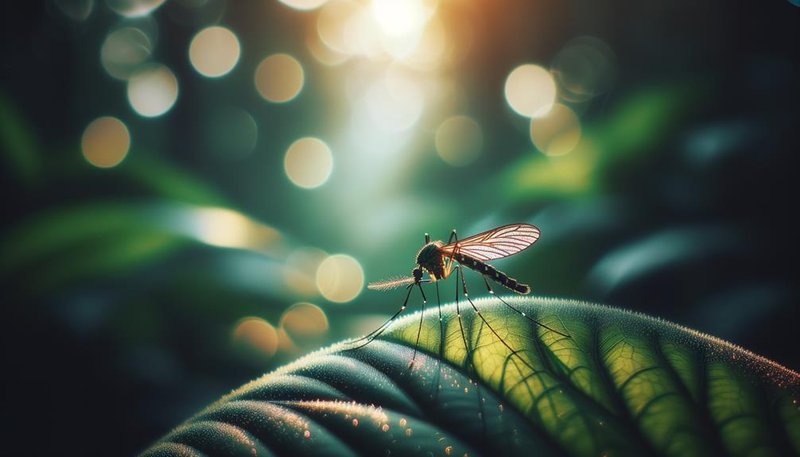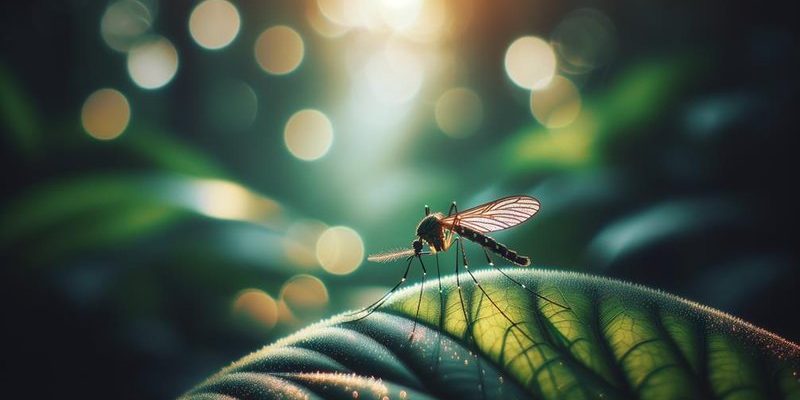
Mosquitoes might seem insignificant, but they are intertwined with many other species and contribute to the health of various ecosystems. From supporting food webs to pollinating plants, these little creatures do much more than just bite. Let’s take a closer look at why mosquitoes matter in the big picture of nature.
1. Mosquitoes as Food Sources
Just like a well-rounded meal needs diverse ingredients, ecosystems thrive on a variety of species. Mosquitoes serve as a crucial food source for numerous animals. Birds, bats, frogs, and even some fish feast on adult mosquitoes and their larvae.
– Birds: Many bird species time their breeding seasons with mosquito populations peaking. More mosquitoes mean more food for their young, helping chicks grow strong, and ultimately supporting healthy bird populations.
– Bats: Some bats can eat thousands of mosquitoes in just one night! This not only helps control mosquito populations but also provides bats with the energy they need to hunt and thrive.
This interconnectedness is vital. If mosquitoes were removed, the animals that rely on them would struggle to find enough food, leading to a ripple effect throughout the food web.
2. Pollination and Plant Life
You might think of bees and butterflies as the stars of pollination, but mosquitoes also play a role—albeit a quieter one. Some mosquito species, especially males, feed on nectar from flowers instead of blood. While sipping nectar, they inadvertently carry pollen from one flower to another, aiding in plant reproduction.
Notably, certain plants are specially adapted to attract mosquitoes. They often have fragrant flowers that lure these insects in. In this way, mosquitoes can help maintain plant diversity, supporting ecosystems’ complexity and resilience.
– Tropical Ecosystems: In rainforests, where biodiversity thrives, mosquitoes might be crucial for the reproduction of several plant species. Losing mosquitoes could disrupt these vital ecological partnerships.
So, when you see a mosquito hovering near a flower, remember it’s not just a pest; it’s contributing to life and growth.
3. Mosquito Larvae and Aquatic Ecosystems
Mosquito larvae are typically found in stagnant water, where they play a unique role in the aquatic ecosystem. These tiny creatures feed on organic material, algae, and microorganisms, helping keep water sources clean and balanced.
– Nutrient Cycling: By consuming algae and decomposing materials, mosquito larvae participate in nutrient cycling, which is essential for healthy water bodies. They help break down organic matter, returning nutrients to the ecosystem.
– Food for Aquatic Animals: Just like adult mosquitoes, larvae are also a food source for fish and other aquatic species. Without mosquito larvae, young fish might struggle to find enough food, disrupting the entire aquatic food web.
So, while they might be pesky, mosquito larvae are actually working hard to keep aquatic habitats healthy and thriving.
4. Disease Vectors and Ecological Balance
Mosquitoes are known as disease vectors because they can carry and transmit diseases. But here’s where it gets a bit complicated. While diseases like malaria or dengue fever can have devastating impacts on human populations, mosquitoes themselves are part of a larger ecological balance.
– Natural Regulation: Many predators, like certain types of birds and bats, have evolved to keep mosquito populations in check. This natural regulation helps prevent one species from overwhelming the ecosystem.
– Selective Pressure: Diseases can also act as a form of natural selection. For example, humans and other animals that survive mosquito-borne diseases may develop immunity over time. This can lead to healthier populations overall, as sick individuals are filtered out.
Understanding this delicate balance helps shift the perception of mosquitoes from mere nuisances to important ecological players.
5. Mosquito Contributions to Biodiversity
Biodiversity is the variety of life in a particular habitat. Mosquitoes, often overlooked, contribute to this biodiversity in several ways. Not only do they support food webs and pollination, but they also ensure genetic diversity among species.
– Genetic Variation: Mosquitoes can adapt quickly to changes in their environment. They can evolve resistance to certain diseases or predators, which might help them survive and thrive. This ability to adapt contributes to the overall resilience of ecosystems.
– Ecosystem Engineers: Mosquitoes can be considered ecosystem engineers as they help shape their environments. By thriving in certain conditions, they can influence the types of organisms that can coexist in those habitats.
So while we often focus on the dangers mosquitoes pose, it’s essential to recognize their contributions to the planet’s biodiversity.
6. Mosquito Management and Conservation
Now that we see the important roles mosquitoes play, it’s worth discussing how we manage their populations. Understanding that mosquitoes are integral to ecosystems can help us approach mosquito management more thoughtfully.
– Integrated Pest Management (IPM): Instead of just trying to eliminate mosquitoes, many experts suggest using IPM strategies. This involves monitoring mosquito populations, understanding their breeding habits, and implementing targeted control measures that minimize harm to other species.
– Habitat Preservation: Preserving wetlands and natural water bodies not only helps mosquitoes breed but also supports the animals that depend on them. Healthy ecosystems are often a win-win for both mosquitoes and their predators.
By taking a balanced approach to mosquito management, we can harness their ecosystem benefits while minimizing their impacts on human health.
7. Final Thoughts on Mosquitoes in Ecosystems
When you look at mosquitoes through the lens of ecology, they transform from simple pests into key players in the environment. From maintaining food webs and pollinating plants to contributing to biodiversity, mosquitoes are deeply woven into the fabric of nature.
While it’s easy to focus on the negative aspects, understanding their role can help us appreciate these tiny creatures. They remind us that even the smallest beings can have a significant impact on the world around us. So next time you swat at a mosquito, think about the bigger picture and the essential roles they play in our ecosystems.

